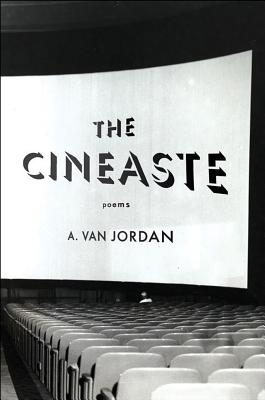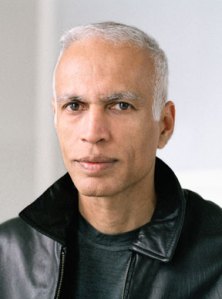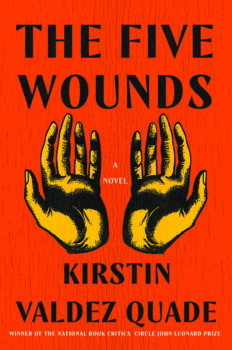 This week’s feature is A. Van Jordan’s new book of poetry, The Cineaste, which was just published by W.W. Norton. The book merges the form and content of an obsession, film, to produce poems tracking the inner lives of movie viewers, the career of early black filmmaker Oscar Micheaux, the story of the Leo Frank trial, and the disturbing racial history of the American film industry.
This week’s feature is A. Van Jordan’s new book of poetry, The Cineaste, which was just published by W.W. Norton. The book merges the form and content of an obsession, film, to produce poems tracking the inner lives of movie viewers, the career of early black filmmaker Oscar Micheaux, the story of the Leo Frank trial, and the disturbing racial history of the American film industry.
Jordan’s first book of poetry, Rise (Tia Chucha Press, 2001), tracks not only the history of African American music, but also the music of Jordan’s life growing up in Ohio. His second book, M-A-C-N-O-L-I-A (W.W. Norton, 2004) imagines the life of MacNolia Cox, who became the first black student to reach the final round of the National Spelling Bee. His third book, Quantum Lyrics (W.W. Norton, 2007), merges superhero comics, autobiography, and the philosophical principles of quantum physics. Jordan is the recipient of numerous literary accolades, including a Guggenheim Fellowship and a Whiting Writers Award. Jordan teaches at the University of Michigan, where he is a Professor of English and Creative Writing.
In her recent conversation with Jordan, Assistant Editor Leah Falk talks with the author about the origins of this recent book, his intentions for this new work, and what’s changed about the way we go to the movies. In response to a question about how the genre of film intersects with his work in The Cineaste, particularly with regards to form, Jordan says:
For me, when I’m thinking about how to render, how to manage information, how to structure something, the first place I’m gonna go to is form. Screenplay is probably one of the only writing arts that’s rarely published. We don’t study it in the same way, but it’s actually a very beautiful form. The issues we usually deal with inside of a poem or a story—they’ve worked all that out in their structure. When we think about transitions of time, transitions of place, the focus being on one character speaking to another, one voice shift, the voice inside someone’s head as opposed to the voice that’s more diegetic; all that’s worked out in the screenplay, and it’s all done through the formatting, so why not borrow that? The sonnet is a very flexible form, and of all the forms I can think of it’s probably the one that’s extended into the 21st century best. At the same time, there’s a certain limitation to it. You don’t want to spend the first sestet contextualizing, telling who’s speaking. So to get around that, I thought if we used the screenplay format, we could just go there. This time, this place, this person speaking.
We’re happy to announce that we’ll be giving away a copy of The Cineaste to three of our Twitter followers. To be eligible for this giveaway (and all future ones), simply click over to Twitter and “follow” us (@fictionwriters).
To all of you who are already fans, thank you!
Links and Resources:
- To read the rest of the interview between Falk and Jordan, please click here.
- Check our A. Van Jordan’s author page at W. W. Norton.
- Here’s a recent NPR feature for Poetry Month from last weekend called “Four Fantastic Books of Verse,” including The Cineaste.
- Read Jordan’s poem “One Week,” which is collected in The Cineaste and appears here on Poetry Daily.





